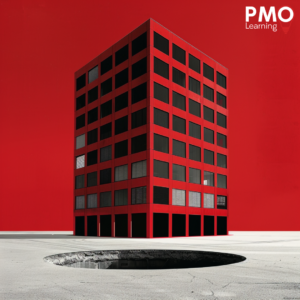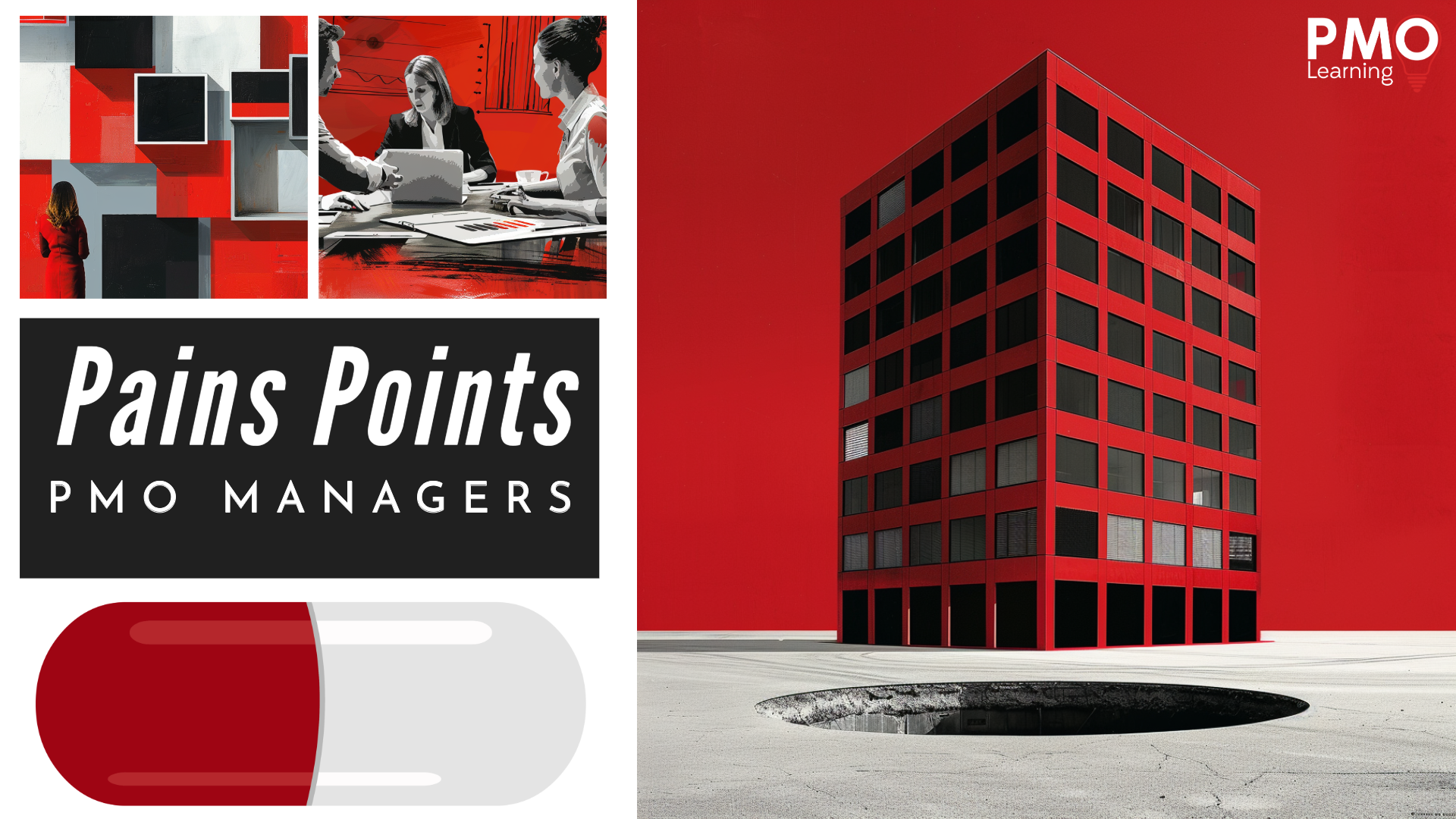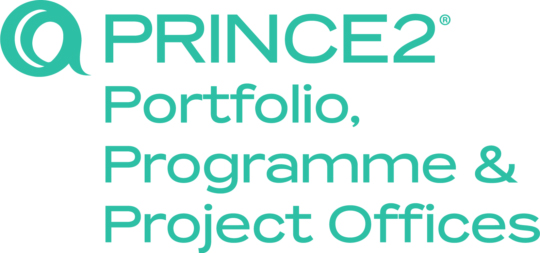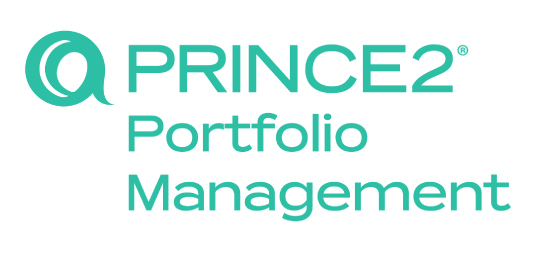Monday morning rolls around again and it’s going to be another busy week packed with projects, deadlines, meetings, people! For many PMO Managers, a busy productive week is one of the reasons why this career path is right for them, however, we know it is not always plain sailing, and it can be fraught and stressful with many challenges that aren’t always fixable.
So, it’s not always a walk in the park, but what if I told you there’s targeted training courses designed with the PMO Manager’s greatest hits of headaches in mind. Let’s take a look in this article into the top five stress points making your work life painful, and how the right training can turn you overcome them.
1. The Wrong PMO
 It’s the biggest and most common problem for people managing PMOs – you are unable to provide the right kind of support to the organisation because the PMO currently in operation isn’t designed to meet the objectives of the organisation.
It’s the biggest and most common problem for people managing PMOs – you are unable to provide the right kind of support to the organisation because the PMO currently in operation isn’t designed to meet the objectives of the organisation.
If the PMO structure isn’t right, that means what the PMO offers in terms of the different services and levels of support probably won’t be right either. That also has a knock-on effect in terms of the types of people working in the PMO and what they are experienced and skilled to do. The biggest problem of course is that this PMO is easy to ignore because it’s not helping anyone effectively.
For a PMO Manager in this position – trying to do the right things each day – becomes hugely stressful.
There are two courses of action – the first, drastically, is to leave the organisation. If you stay and nothing changes, it will just become worse for you. The second option is to change what the PMO is and what it does. Now that might mean you need some external help to do that. Many organisations decide to go down the consultant route however it can just be a case of widening your own knowledge to learn more about the different approaches that exist today in setting up different types of PMOs – and perhaps more crucially, how you get the support to do that.
If you have not already seen the Portfolio, Programme and Project Offices (P3O) approach to setting up PMOs, that will definitely be [a place to start]. The other option is the Essentials for PMO Managers, which focuses more on the PMO Manager role itself – helping you to think about what structure will work for the organisation and how a service-based approach has really helped PMO Managers to manage their PMO/s effectively and more efficiently.[Take a look here]
2. Stuck in the Administrative Support Mode
 Even if the PMO is doing some good work and helping large sections of the delivery organisation, there will always be a few detractors who can’t see past the PMO’s ancient history. Sure, back in the early noughties, the PMO was still called the Project Support Office (PSO) and it did provide a lot of administrative support, fast forward to 2024 and things have changed alot.
Even if the PMO is doing some good work and helping large sections of the delivery organisation, there will always be a few detractors who can’t see past the PMO’s ancient history. Sure, back in the early noughties, the PMO was still called the Project Support Office (PSO) and it did provide a lot of administrative support, fast forward to 2024 and things have changed alot.
So how do PMO Managers start to change the hearts and minds of those people who can really drag a PMO back?
The biggest change over the last two decades has been the PMO bring seen as a service-based entity. That means the PMO provides specific services depending on what its ‘customers’ want. Sure, that might mean that some in the organisation still want and need that administrative support and the PMO can provide that, however, with limited resources that might mean the PMO doesn’t have time to provide a governance structure; create real-time dashboards; provide decision-support to senior executives or pull together a training program for all the PMs in the organisation in risk mitigation techniques.
You get the picture. If the organisation really wants that high-performing project management capability, it really needs to think about what they PMO should really be doing to support that (and taking minutes at the project meeting probably isn’t it!)
The service-based approach to PMO is covered in the three-day Essentials for PMO Managers course. In fact, it’s one of the first aspects of the course because the PMO Manager (or PMO Director) is responsible for overseeing the design and implementation of the services that your PMO will offer.
3. It’s a Lonely Role Sometimes
 PMO Managers often find themselves in a unique position where they are responsible for oversight across various projects and teams, yet may not have a dedicated peer group within their organisation. The most popular types of PMOs in organisations today are ‘PMO of One’ and ‘PMO of Two’ so it is easy to see why there aren’t many people around to bounce ideas off, or even share the workload.
PMO Managers often find themselves in a unique position where they are responsible for oversight across various projects and teams, yet may not have a dedicated peer group within their organisation. The most popular types of PMOs in organisations today are ‘PMO of One’ and ‘PMO of Two’ so it is easy to see why there aren’t many people around to bounce ideas off, or even share the workload.
This isolation can be emotionally challenging, leading to feelings of being misunderstood or undervalued. Networking with other PMO professionals and seeking mentorship or coaching can provide much-needed support and a sense of community.
PMO Learning became a consulting member at the House of PMO to become a part of an active PMO community and you should check that out too.
In terms of more active support, PMO Learning has its own [community of PMO coaches], so if you’re looking for wise counsel and advice you should take a look at what we offer.
4. They Just Don’t Get It
 Here you are, trying to deliver a decent rack of PMO services, develop a team of people who are happy and motivated to work in the PMO and just have some sense of achievement that what you’re doing as a PMO Manager is working and having the desired effect.
Here you are, trying to deliver a decent rack of PMO services, develop a team of people who are happy and motivated to work in the PMO and just have some sense of achievement that what you’re doing as a PMO Manager is working and having the desired effect.
Yet no-one seems to know what a great job you and the team are doing (with the resources and time you have available!)
There has long been a saying in relation to PMOs: ‘ The better it performs, the more likely it is that the organisation might consider its continued operation as less critical to the day-to-day functioning of the business.’ That’s because the PMO has been doing a good job improving project management capability, and the formal governance and oversight provided by the PMO are no longer deemed necessary in a mature delivery organisation. Of course, it doesn’t take into account that the business landscape is continuously evolving and whilst it might be deemed mature one day, it can quickly become stagnant without continuous improvement, usually provided by something like the PMO!
The PMO Manager (or PMO Director) has the remit to ensure that the delivery organisation are continually aware of the good work the PMO is doing. Whether that is through targetted measures that align with the organisation’s goals; effective leadership and visibility; or consistent communication and stakeholder engagement, it’s crucial for maintaining the relevance and perceived value of the PMO within the organisation. This not only helps in demonstrating the PMO’s contributions to project successes but also in building a culture of trust and collaboration between the PMO and the rest of the organisation.
The Essentials for PMO Managers course is the only course which focuses on the different competences, skills, behaviours and knowledge required to perform the role competently. It combines the different aspects of leading PMOs where every PMO Manager has to find the balance between the technical aspects of delivering PMO services and the stakeholder engagement activities that continually highlight the work the PMO does and the impact it has to the overall success of project management and change in the organisation.
5. We Could Do More If We Knew More
 For many organisations, PMO is not seen as a profession in its own right. It is often seen as a poorer relation to project management and as such, people working in the PMO often miss out on all the opportunities that being a part of a profession can bring.
For many organisations, PMO is not seen as a profession in its own right. It is often seen as a poorer relation to project management and as such, people working in the PMO often miss out on all the opportunities that being a part of a profession can bring.
A good example is the PMO being a place for anyone to work in – some graduates and interns perhaps, people displaced from other parts of the business, even failed Project Managers. The PMO is the place to go when there’s no place left.
It’s hardly the right foundation for building a centre of excellence and undermines the PMO’s value and contributions from the outset.
Another example is the lack of the right tools for the job—how many PMOs still rely on spreadsheets when a more powerful platform is really needed to deliver great insights and enable effective decision-making?
We could carry on with many more examples, but the biggest advocate for being part of a profession is access to professional development, which helps everyone working within the PMO.
As a PMO Manager, you have a responsibility to ensure the team has the unique skill sets and expertise to perform their roles competently.
Elevating the PMO’s status starts with targeted professional development, advocating for the recognition of PMO roles as career paths in their own right, and providing the right support and leadership are all key aspects of the PMO Manager role.
Finding the right blend of development to upskill the PMO team – both formal PMO training and on-the-job opportunities is often one of the toughest parts of the PMO Manager role, yet often the most rewarding.
PMO Learning also offers formal PMO training for teams – a great way to ensure everyone becomes upskilled together [In-house courses]
Monday mornings signal the start of a busy week for PMO Managers, filled with challenges that range from misaligned PMOs to feeling like a solo act. It’s not easy, but the silver lining? Targeted training courses are available to help address some of your main pain points and help you keep pushing forward in this great profession we call PMO.
If you love PMO as much as we do here at PMO Learning, make sure you stay in touch:
Enjoying Our Blog?
Sign up and receive all our articles (we’ll send you an update once a week!) plus special offers and events:







